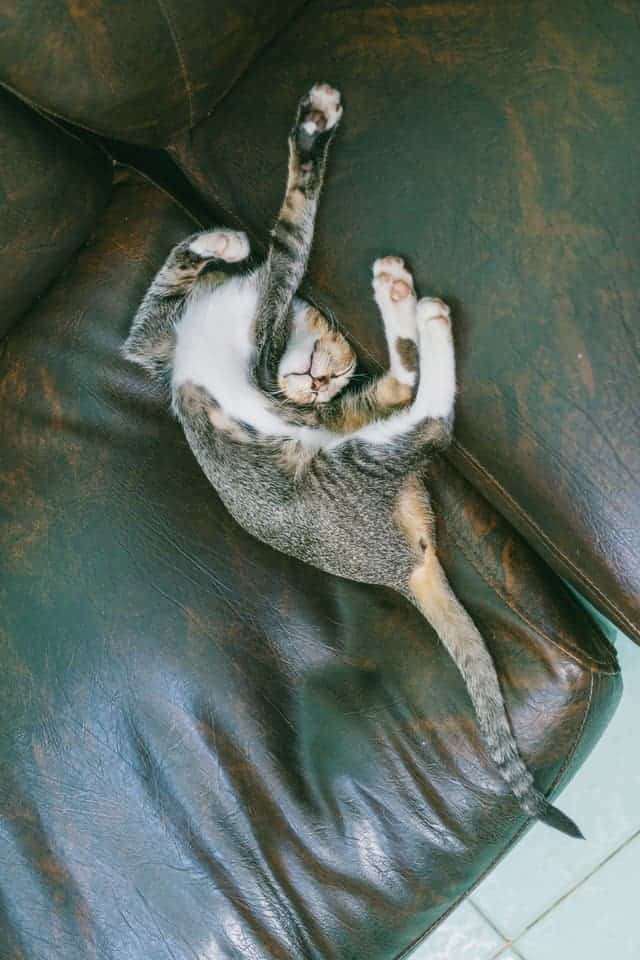
Loss of coordination in the cat makes the feline funny, but it is a condition that should not be underestimated. Let’s see the causes, symptoms and treatment.
The cat has always been recognized as an elegant and graceful creature, but not free from balance problems. It can happen during the life of the animal, to have problems with loss of coordination in the cat, scientifically called ataxias in the cat.
Severity can be more or less important: it can range from mild gait disturbances to falls. The cat can live for a long time and even with normality since it is not subject to suffering or discomfort. But despite this, the pathology that causes ataxia or loss of coordination in the cat is not treated, the animal could lose its life in a short period of time.
Cause of cat loss of coordination or feline ataxia
Generally, when the feline’s brain and spinal cord are compromised, this impedes its ability to communicate with the rest of the body’s nervous system, which is what will cause many cases of ataxia and loss of coordination in the cat. The causes of cat loss of coordination can be very varied, including:
- cat poisoning;
- spinal cord injury;
- lack of vitamin B1;
- brain damage;
- tumors.
Types of Ataxia (loss of coordination in cats)
- Cerebellar ataxia: the cat moves without coordination but in a very extreme and exaggerated way. Legs apart, exaggerated jumps, shaking legs, bouncing are signs that the feline’s cerebellum has suffered an injury.
- Sensory ataxia: in this case the damage is to the brain. Although there may also be injury to the peripheral nerves or the spinal cord. The cat takes longer steps than normal, tends to crawl, seems weak and generally the limbs are very separated from each other.
- Vestibular ataxia: in this case the damage is related to the nerves that connect the inner middle ear. The cat tends to fall on the affected side or turns its head a lot in that direction. And it is in this case that the animal tends to shake its head in a strange way.
Symptoms of Loss of Coordination in the Cat
Loss of coordination in cats is itself a symptom of a neurological problem. Ataxia in cats must be considered more clearly a symptom that warns us that the cat has suffered an injury in the areas that control the movements of the body. The characteristic symptoms that help us understand the feline problem are:
- weakness in the legs, especially in the hind legs.
- lethargy in cats;
- behavioral changes;
- state of general weakness;
- loss of appetite in cats ;
- spasms in the head;
- hearing problems;
- armed head;
- involuntary eye movements.
When faced with any of these symptoms, you should immediately go to your usual vet.
Diagnosis and treatment

If your cat suddenly starts exhibiting strange behaviors and movements, don’t hesitate to go to the vet. In order to establish a diagnosis, not only the evaluation of symptoms is necessary, but a necessary assessment through specific tests.
These tests include: tests are generally complex, involving blood tests to check the condition of the liver and kidneys and x-rays and ultrasounds to detect tumors in the cat or accumulations of water in the brain.
In addition, all relevant data that may explain the appearance of ataxia should be communicated to the veterinarian, from a change in the cat’s diet to a possible accident or fall. During the examinations it will be necessary to exclude, in young cats, infectious, inflammatory, traumatic diseases, poisonings and obviously congenital anomalies.
In older animals, however, it is very important to exclude neoplasms, vascular and degenerative diseases. As for the treatment if the origin is found in time, it is possible to use the treatment based on the cause.
This is why therapy will be individual and depending on the cause. For example , if it is a momentary problem, such as a mild cat poisoning or an intake of mint, the effects are temporary.
Likewise, if the problem is a vitamin B1 deficiency, with a balanced diet and some vitamin supplements, the cat will make a full recovery. While spinal cord injuries or brain problems must be evaluated on a case-by-case basis.






